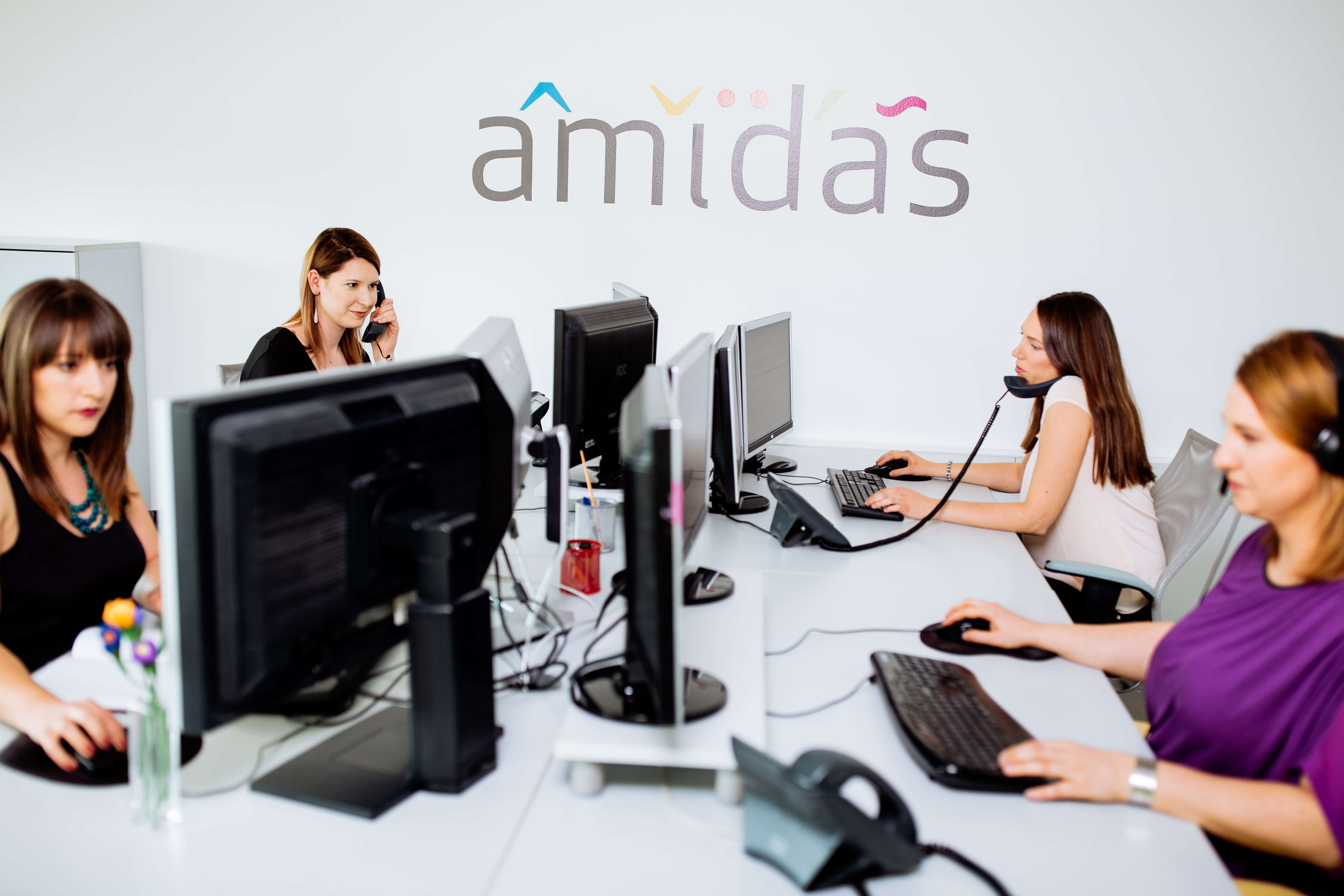If you live in Slovenia and don’t speak the language then at various times you’re going to need the services of a translator, and no matter what your abilities you’ll occasionally need a certified translation of an official document. On the other side of things, as a non-Slovene a common form of employment here, self or otherwise, will draw on your abilities with your mother tongue.
In short, translations, translators and translation agencies are an unavoidable part of life for individuals and firms operating in and out the country, and a subject of professional curiosity for many non-Slovene residents.
It was thus with great interest that I met with Dejan Šušnik, one of the founders of Amidas, the first private translation agency in the country, established just after Slovenia declared independence. Curious as to how the industry had changed over the last three decades, and the shape it’s in now, I sat down with Mr Šušnik for the following interview.
How did you get started in translating?
My father worked for Yugotours, a well-known Yugoslav tourist agency first founded in London, Oxford street and then later in New York. Because of my father’s work in London and later New York I grew up bilingual. In fact my brother and I spoke to each other in English for some while after we came back to Slovenia. That’s how I started translating, although just Slovene into English at the time.
How did Amidas start?
The idea for the company was mine. At the time I worked as a librarian at the Jožef Stefan Institute, finally as chief librarian. During this time I started getting work as a translator, the translation work started piling and I had to make a decision, either to translate or to stop working at the Institute. Since I preferred to be my own boss, I quit my job at IJS.
Just before the war [in 1991] I was, among other things, asked to organise the news service for the Slovenian government, so I set up a team translating the news from Slovene to English. I was the person translating the news when the war began, which I announced to the media. Then with Slovenia’s independence it became possible to open a private business, and that’s how we became the first translation company to open in the country.
I should note though that I didn’t start Amidas myself, but with two friends. One took care of the organisation, I did the marketing and translating, and then we got an Englishman for the language editing and the image – Roger Metcalfe, who was actually involved with translating some of the Slovenian constitution.
What’s changed since the early days?
The technology, most of all. At first, in the 80s, I was using a typewriter and sending documents by courier. Then in the early 90s we started to get a bit of email, but we still had to use paper dictionaries and there were no translation tools. But then those started coming onto the Slovenian market, a few years after some other countries, and of course they’ve only improved, along with the number of computers we use. This has made both translating and organising translating much easier.
Another change is that I thought there’d be more translation into English than Slovene, and that was true at the beginning, but then we started to get more and more foreign companies who needed things translated into Slovene. We started working with for Nokia, for example, who also gave us some new translation tools to work with. And then around 2000 there was Microsoft and Windows XP. That was a huge volume of work, you have no idea how many words are in a programme, some two million. If you can imagine it, we translated all the interfaces, system messages, error messages and so on, for that version of Windows, some of which are probably still in there.

Some of the team at Amidas
Is your work mainly with large clients?
Yes, we still have some large clients, like Fraport, Telekom Slovenije, Pošta Slovenije, Postojnska jama and so on, and the work is quite varied. For example, for the Bank of Slovenia we translate their reports into English, while we translate from English into Slovene for the European Central Bank, and we do quite a lot of work for the EU.
That said, we also work on smaller projects, even with individuals, so certified translations for marriages, passports, that kind of thing.
I noticed that you’re very well organised in terms of project management. How important is that for the business?
Project management is key, especially when the business starts growing. The managers know, based on the subject matter, where to send each text. So if it’s nuclear physics or art history it’ll go to the right person. This kind of organisation might be quite common outside of Slovenia, but it’s still rare here, and those companies that do try and do it better tend to follow what we do, rather than something different.
But if I had to say why we’re so well organised, other than our experience, then I think it might be because we’re members of some professional organisations, such as European Language Industry Association (ELIA), Gala and Eulogia. We were actually one of the founding members of ELIA, and it started because the other translation organisations just didn’t seem good enough. We wanted to start something based on real know-how and knowledge, so that people could learn more about the business. It holds events twice a year now, mainly to make contacts and organise some business-to-business work. But there are also sessions on, let’s say, project management, machine translation, sales, and so on.
So you’re quite well-integrated within the wider industry?
Yes, and that means we’re part of a transnational team that has access to almost all the languages. So, for example, if you need something from Slovene to Swedish we have a reliable partner we know is good at this, and who can meet your deadline.
Is outsourcing important?
Yes. It would be very difficult to find a good translator for, let’s say, English to Japanese or Japanese to English in Slovenia, so for jobs like that we go to our partners in the UK or Japan. What this means in practice is that whatever language pair people come here with we can probably help them, and not just with someone who knows a little Finnish, for example, but an expert. And we can deal with the whole project without the client having to worry about finding someone in Helsinki.
I saw that you also offer desktop publishing, editing and copywriting, are these other services a large part of the business?
Well, editing is always part of translating, and copywriting we don’t do so much of, to be honest. That’s more like localisation and making sure that your message is expressed in a way that’s culturally, and not just linguistically, appropriate.
Desktop publishing is another case, and that’s a growing part of our work. With this the customer just sends us the Adobe inDesign files for, say, a brochure or manual, and we’ll not only translate it but also handle the layout and design, so that the translated version looks as much like the original as possible, sending a file back to that’s ready for publishing
And what’s the future for Amidas?
One thing is we’re looking to expand to other countries, ex-Yugoslavia first. But my involvement is winding down now, and my daughter, Nina, who’s been working here for 20 years, she’s taking over, so you’ll have to come back in two decades and ask her what happened.
If you’re interested in working with Amidas, which is based in Ljubljana but works internationally, you can learn more about the company on its website.







